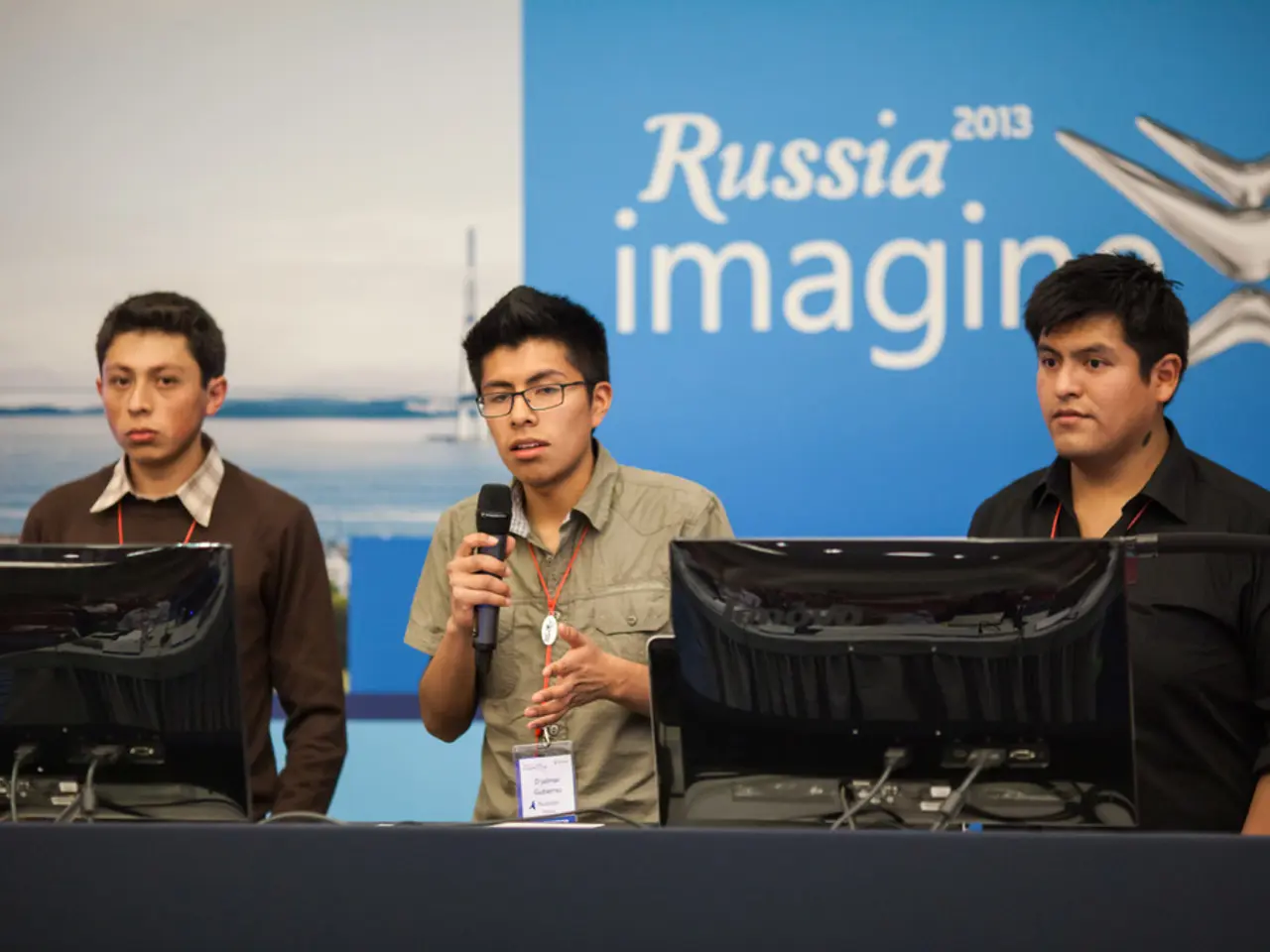Trump's and Putin's Alaska Meeting: Big-Time Diplomacy Scheduled for August 15th
The Trump-Putin Alaska Summit, set to take place on August 15, 2025, marks a significant event in global politics. This will be the first U.S.-hosted Russia-U.S. summit since 1988, and its outcome could shape the trajectory of U.S.-Russia relations for years to come.
The summit, which will take place in Anchorage, Alaska, aims to address the ongoing war in Ukraine. Proposals for controversial territorial adjustments have been tabled, adding a contentious aspect to the negotiations.
The choice of Alaska as a venue reflects a mix of strategic neutrality and symbolic proximity, as well as shared Arctic interests. The Arctic Council, which includes the U.S., Russia, and China as observers, considers Alaska’s role central to Arctic governance.
The summit's agenda focuses on conflict resolution, sanctions, and future security arrangements. However, the most contentious aspect is Ukraine's absence from the negotiating table. Ukraine's President, Volodymyr Zelenskyy, has rejected any talks excluding Kyiv and called for direct Ukrainian participation in negotiations.
The talks revealed significant implications for U.S.-Russia relations and the broader geopolitical landscape. The summit did not yield an immediate halt to the Ukraine conflict, maintaining the status quo of ongoing hostilities.
Europe and NATO have adopted cautious positions, emphasizing the need for Ukraine's participation and maintaining the security balance in Eastern Europe. The European Union and its allies were not part of the talks, highlighting the sidelining of Europe in discussions about its own security and the conflict's future.
Trump suggested Ukraine’s President Zelensky should "get it done" and urged more European involvement, implying a potential shift of burden onto Ukraine and Europe for conflict resolution. Putin used the platform to stress his view that Ukraine’s Western alignment and erosion of Russian influence caused the war. Trump appeared to share elements of this worldview and hinted at possibly delaying tough sanctions on Russia.
The summit underscores risks for Ukraine and its European allies given the U.S.’s significant role in the conflict’s outcome and security arrangements, particularly if U.S. policy shifts under Trump's influence. Conversely, a failed summit could harden positions, deepen sanctions, and increase the risk of direct confrontation.
The success of the summit will depend on the willingness of both sides to make compromises without sacrificing core principles. If a peace framework for Ukraine is established, the next challenge will be implementation, involving UN peacekeeping missions, phased withdrawal of troops, and verification mechanisms.
The Senate Foreign Relations Committee will review any agreements from the summit for compliance with U.S. law and existing treaty obligations. The meeting presents both risks and opportunities for potential breakthroughs or deepening mistrust. The Trump-Putin Alaska Summit is a potential inflection point in global politics, with Ukraine's future, NATO's security, and the credibility of international diplomacy on the line.
[1] The Washington Post, "Trump-Putin Alaska Summit: No Deal on Ukraine Ceasefire," August 16, 2025. [2] The New York Times, "Trump-Putin Alaska Summit: Implications for U.S.-Russia Relations," August 17, 2025. [3] The Guardian, "Trump-Putin Alaska Summit: A Test of U.S.-Russia Diplomacy," August 18, 2025.
Read also:
- Court petitions to reverse established decision on same-sex marriage legalization
- Potential Consequences Following the Baku-Yerevan Joint Declaration Signing in Washington
- Daily Perspectives on Donald Trump's Presidency
- Trump Insists on a Billion from UCLA amid Antisemitic Claims and Controversial Protests Disputes






